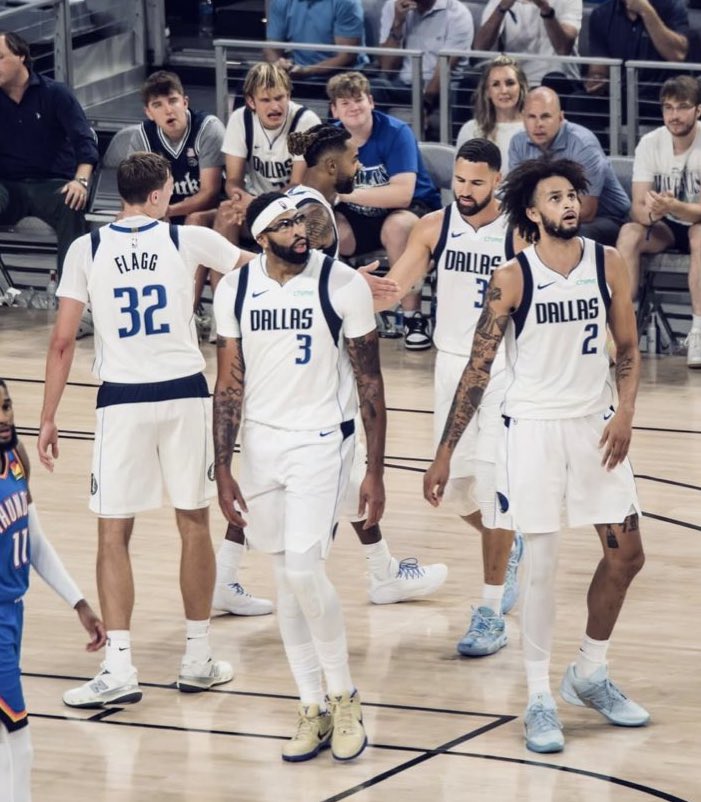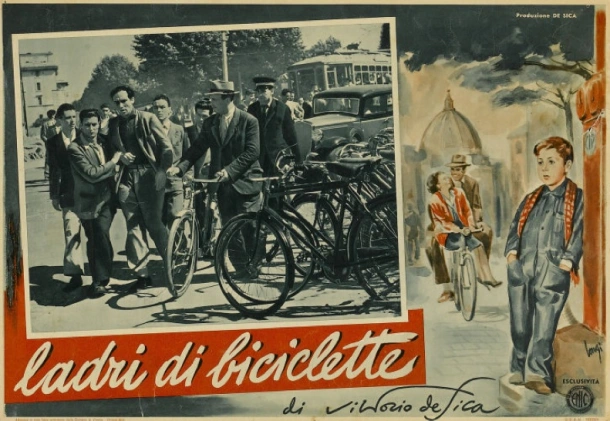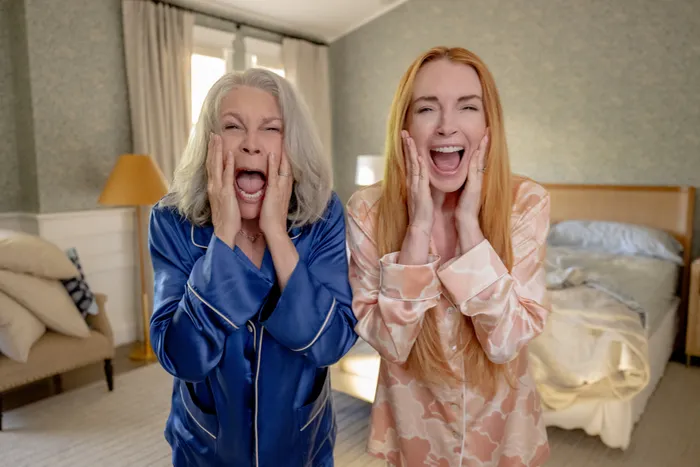Bicycle Thieves, or as it is known in its native Italian “Ladri di biciclette”, is a film made just after the end of the Second World War in Rome, and is also set during that time. Where it follows Antonio Ricci, who has been without work for sometime,who receives a job in which he hangs posters on walls. On his very first day though his bicycle is stolen, which he needs in order to have the job. This starts a spiral for Antonio, in which he becomes increasingly desperate to get his bicycle.
The story greatly highlights the injustice which goes on day to day. As when Antonio goes to the police there is little that can be done, as the post-war police have greater priorities than a simple bicycle search. It can also be seen when Antonio finally finds the thief, but is quickly turned into the villain as the thief’s neighbours protect him against Antonio’s claims. Even the police officer says that there is little that can be done even if he was the thief as all the neighbours would testify against Antonio, thus making it his word vs. theirs. The hopelessness that Antonio feels after this then leads him to try and get a bicycle but the same means in which he lost it. At the end of the road there is little hope to be felt for Antonio. Who gets tossed by society to the curve, with no one but those closest to him caring about the whole affair.
Whilst the large chunk of the film is quite sombre, there are moments of faith and hope. Such as the scenes that followed after the bike theft, when his friends tried their best to help him look for the bike. There is also a scene just after Antonio loses sight of the man who knew where the thief was. When in defeat he looks at his son Bruno, who is now tired and hungry, and takes him to a restaurant. There he forgets his worries and buys a wine glass and two mozzarella sandwiches. In the scene we also see a wealthy family eat just on the table in front of them, with stacks of food all on the table. At this moment though this seemingly simple mozzarella sandwich gives much joy to both Bruno and Antonio. Whilst on the other table they stuff food into their mouths with no real emotion. This also shows us again how the top have no care for those like Antonio, people who have to sacrifice everything in order to feed their family.
Personally I like how this film shows the desperation of the time, as you can’t help but pity Antonio’s situation. This sympathy comes easily, as I feel we all would try to do anything to put food on the table for our families. So with that being said, I greatly encourage all to watch this film. Whether it be to catch a glimpse of post-war Italy, or to just have a nice cry at the hardships faced by the Ricci family.














